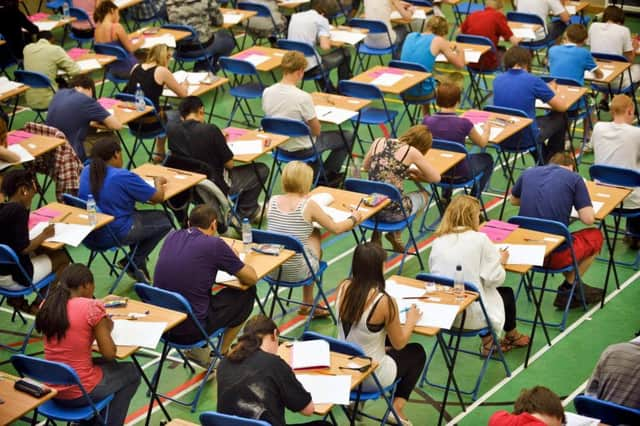MP warns employers won’t understand the new 9 to 1 number grades for GCSEs


The Education Select Committee heard fears that students could be discriminated against because employers would not understand the new system which comes in from 2017.
MP Ian Austin also voiced concern that there would be a lengthy period where some students would get “a mixture of numbers and letters” for their GCSE results.
Advertisement
Hide AdAdvertisement
Hide Ad“How can we be confident that anyone is going to understand that?” he said.
The Labour MP was questioning senior figures from Ofqual - the exams regulator - at a select committee hearing today.
He asked why the shift was happening?
Ofqual’s chief regulator Glenys Stacey told MPs that the change in grades helped to signal that students were sitting the new reformed GCSEs “after a very significant change in the qualification”.
The reformed GCSEs, which are said to be more rigorous, have started being delivered to year ten pupils in schools this academic year in English Literature, English Language and maths.
Advertisement
Hide AdAdvertisement
Hide AdThese pupils will be the first to be graded from nine to one in 2017.
Ms Stacey told the committee that in ten years time it would show on someone’s CV that they had been sitting the new GCSE if they had a number grade rather than a letter. She also said there moving from letters to numbers had allowed more differentiation - particularly in the top grades.
One of the criticisms of the current GCSE is that the increasing number of A* and A grades have made it more difficult to identify the very best student performance.
Ms Stacey said: “We have gone from eight grades to nine. We have moved towards greater differentiation across the grade spectrum and a slight shift of more grade differentiation at the top end.”
Advertisement
Hide AdAdvertisement
Hide AdShe said that this change had been requested by the qualifications’ users. Ms Stacey also said consultation had showed that people preferred nine as the top grade rather than a one. And she said there had been number grades for exams in the past, although this was in the mid 1970s.
Mr Austin responded: “I am not persuaded. I think it is going to be quiet confusing particularly during the introduction. The way it is going to be introduced with some subjects coming in at first and others later mean we are going to have quite a lengthy period were people are going to get a mix of numbers and letters.
“How can we be confident that anyone is going to understand that - employers or institutions that students might be going on to? And how can we be confident that employers won’t discriminate against students who have got numbers because they don’t really understand what the new system is when they do understand the old system?”
He suggested people had “no clue” that this change was coming in.
Advertisement
Hide AdAdvertisement
Hide AdMs Stacey said Ofqual had a job to do to make sure people understood the changes that was taking place - particularly employers
However she said that once the change was explained it was “relatively straightforward” to understand. She said a grade four was the equivalent of a bottom C.
The new GCSEs are being introduced in phases. English literature and language and maths will be the first to be graded under the new system in 2017.